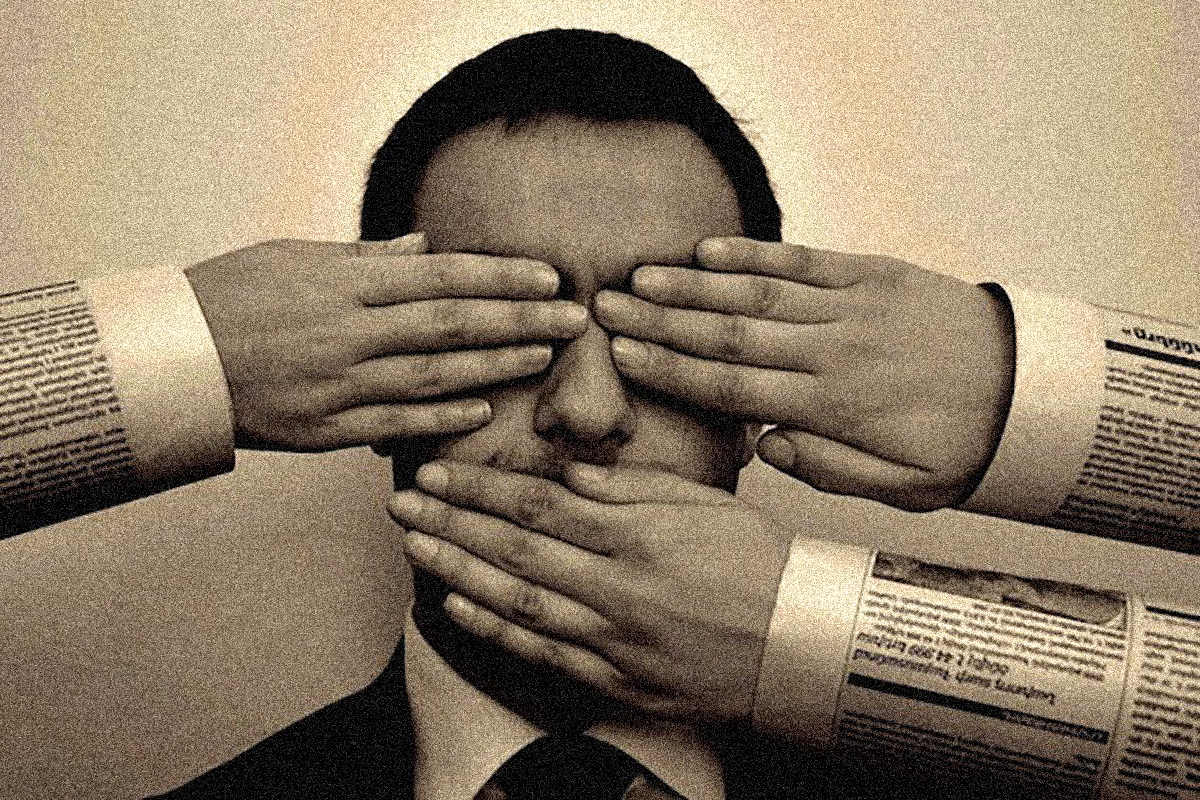

Until that point he and his associated media outlets had been faithful supporters of Serbia’s Prime Minister, Aleksandar Vučić, and his policies. In a blunt admission of the extent of political censorship in the Serbian media, Rodić described how threats to weaken his company financially or create fabricated legal cases led to the development of self-censorship among journalists.
While the official reason for this sudden confession is an alleged request by political decision-makers not to go public with stories of corruption involving the Belgrade MayorSiniša Mali, the real reasons for breaking the story probably lay elsewhere in the ongoing scramble for money and political influence of the country’s leading media tycoons. Nevertheless, the response from pro-government media sources, which included the publication of Rodić’s home address, and the silence of state institutions on the matter raise some important questions about the nature of democracy in Serbia.
Media censorship in Serbia is no longer news. Freedom House’s annual index onFreedom of the Pressranks Serbia as 74th out of the 196 countries considered in its latest2015 report, with the Serbian media considered only ‘partly free’. It is interesting to observe that Serbian media freedom has, according to Freedom House, declined for six years in a row, with setbacks registered in the legal, political and economic environment. In its previous Progress Reports, the European Commission stated that threats and violence against journalists continue to be a significant factor affecting the existence of self-censorship, which must be addressed during Serbia’s accession talks.
In the 2015Progress Reporton Serbia, released on 10 November, the Commission was clear in stating that while Serbia has achieved some level of preparation concerning the right to freedom of expression, no coherent progress has been made overall in thelast year. It is worth noting that just over a year ago, Johannes Hahn, the Commissioner for European Neighbourhood and Enlargement, stated that he needed proof, not rumours, in order to react to alleged media freedom violations in Serbia. Over the course of the year evidence has piled up.
Freedom of the media is protected by Serbia’s constitution and legal system; however, state control and ownership of public media, government ownership of a crucial part of the marketing sector, somewhat dubious ownership structures, the strong economic dependence of independent media, and soft pressure coming from both political and non-political elites, has led to the creation of a creeping form of self-censorship.
Moreover, there are journalists who continue to face physical and verbal attacks, while some live under 24-hour police protection as they face threats due to the results of their investigative work. The economic vulnerability of independent journalists also provides an opportunity for business interference in the media, including the influence exercised by the representatives of foreign capital.
This has made it more difficult to clearly point to examples of political influence. Veran Matić, former director of the B92 media organisation, has previously commented that there are numerous ways to apply pressure, and the more sophisticated they become, the more difficult they are to recognise.
This is why the first ever testimony of an ‘insider’ in the shape of Rodić may create a turning point in understanding the mechanisms of media control in the country. It could also open up the question of the degree to which crucial constitutional institutions in Serbia are consolidated. If Rodić’s claims turn out to be true, or state institutions fail to address his allegations in an impartial and transparent manner, the issue will inevitably raise questions over the level of democratic consolidation in Serbia.
But how did we get to this point? Prime Minister Vučić’s government is not the first to develop mechanisms of media control. It has merelyperfectedthe practice developed by its predecessors, led by the Democratic Party under Boris Tadić. Ultimately the main weakness in Serbia’s democracy is a legal failure: namely, the defective system for ensuring the rule of law, which lacks checks and balances, while the prominent role of the executive branch threatens to undermine the entire democratic system. Long term, this deficiency may even discredit attempts to hold fair elections as part of a meaningful democratic process.